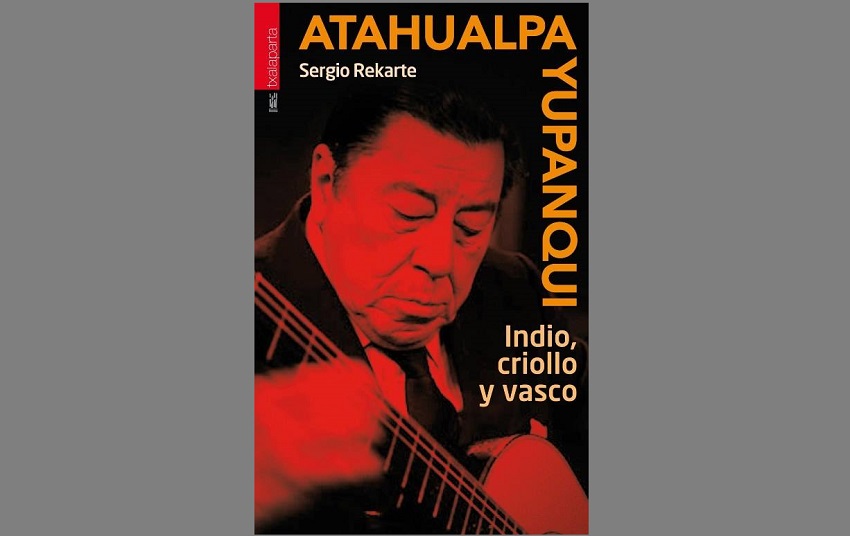The book published by Txalaparta (Tafalla, Navarre) looks to “bring the figure of Atahualpa Yupanqui to the Basques in Euskal Herria and if possible, also to the Diaspora in general, bringing to light the close relationship between the artist and the Basque people.” Atahualpa Yupanqui, Indian, Creole and Basque is for sale in Basque bookstores and in Spain; besides that you can purchase it online, even though its author, Sergio Recarte, has not dismissed the possibility of presenting it in Argentina as well.
Gral. Villegas, Argentina. “The book has two backgrounds,” Sergio Recarte explains to EuskalKultura.com. “On the one had a brief biography that I presented for the Asmoz Foundation course where I highlighted the Basque origin of Yupanqui on his mother’s side; and on the other an article that I later wrote for Euskonews where I am a regular contributor. At the root of this, Txalaparta publishing contacted me to express their interest in me writing a text for their Ravel Collection, on the live and owrks of some relevant singers. That is who it all started, and resulted in someone from the publishing house describing it as, “a beautiful paper creature.”
Once the challenge was accepted, Recarte began an exhaustive bibliographic research that allowed him to delve into points of interest. “I needed a long time to elaborate and study, to compile data, from innumerable informational sources that I consulted, to dive into archives, read practically everything that is written about Yupanqui and also drink in his own literary and musical works. Above all, I had the luck of counting on the help of many people in the Basque Country as well as in Argentina, that provided me information and personal experiences,” the Basque-Argentine writer explained.
The Biography among Biographies
As a main reference in Argentine folklore, there is a lot of literature that already exists on the live and works of Hector Roberto Chavero Haran, known world-wide as Atahualpa Yupanqui. Nevertheless, Atahualpa Yupanqui, Indio, Creole, and Basque is different from the other biographies and its author explains it in this way: “The idea is to visualize and strengthen the relationship that the artist had with the Basque people. Yupanqui visited the Basque Country for the first time in 1968 when he was 60 years old and knew that he was considered as the patriarch of Argentine folklore, after having experiencing adventures of all kinds. His arrival to Euskal Herria, to Hegoalde, specifically, was immediately appreciated by those who defended the Basque culture, for example, among the members of the vanguard group Ez dok Amairu, among whom he had great influence.”
“On another plane – Recarte continues – the book is also an intense 20th century tour in Argentina, through a biography. Yupanqui was born in 1908 and died in 1992, so his steps and gait of a troubadour, as well as political militant, left memorable marks on different historic contexts with changing social and economic impressions.”
Available in the Basque Country and online
Since Txalaparta publishers don’t have a distributor in Argentina – which made getting the books abroad difficult – for the time being, the book is available in book stores in the Basque Country and Spain. You can get it in Argentina and the rest of the world too by ordering it online: www.gureliburuak.eus. Recarte hasn’t given up hope of a future presentation of Atahualpa Yupanqui, Indio, Creole, and Basque in his country.
“The biography doesn’t pretend to surpass the others, all of them, probably more compete and better written by superbly capable authors on this subject. It simple tires to leave the Yupanqui’s Basque roots clear as well as what that meant for his personality, as he manifested himself in the book The Song of the Wind ‘all this world in my veins, Indians, Basques, Gauchos, determine my joys, scares, my instinct for freedom,’” Sergio Recarte concludes.






 Send to a friend
Send to a friend Add comment
Add comment








